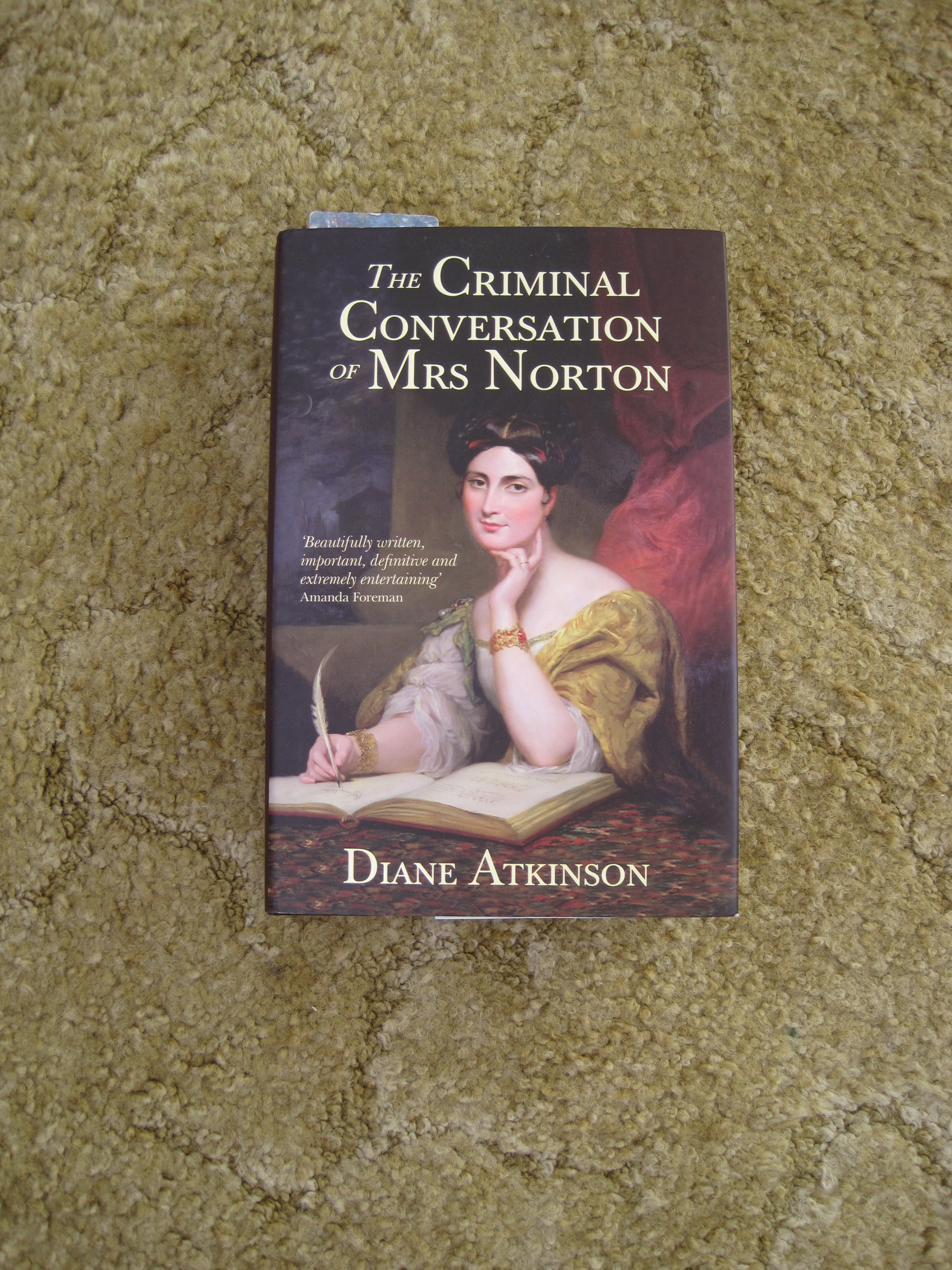The life of Caroline Norton
Not a work of fiction, this is an account of the life of Caroline Norton.
Born Caroline Elizabeth Sarah Sheridan on 22 March 1808, the daughter of Thomas Sheridan and the novelist Caroline Henrietta Callander, and grandughter of Richard Brinsley Sheridan.
She married George Chapple Norton in 1827. The couple had three sons. Norton encouraged his wife to use her connections to advance his career. However, he was a jealous and possessive husband, given to violent fits of drunkenness.
In 1836, Caroline left her husband.
Norton abducted their sons, hiding them with relatives and refusing to tell Caroline anything of their whereabouts. Norton also accused Caroline of being involved in an ongoing affair with her close friend, the Prime Minister, Lord Melbourne.
The trail of Criminal Conversation between Mrs Norton and Lord Melbourne was heard in court, but only Lord Melbourne and George Norton were represented. Caroline Norton was not represented in court and could offer no defense, as she did not have a separate legal identity from their husband. Although Lord Melbourne was found not guilty, and, by implication, she was not guilty, her reputation was destroyed. The idea of no smoke without fire continued to blight her life.
The crime in this book is adultery
A “Criminal Conversation” was a way to describe adultery. It gave a husband the right to recover legal damages from his wife’s adulterous partner. Only a husband could be the plaintiff, and only the “other man” could be the defendant. The tort of criminal conversation was abolished in England and Wales in 1857.

Synopsis
Caroline Norton, born in 1808, was a society beauty, poet and pamphleteer. Her good looks and wit attracted many male admirers, first her husband, the Honourable George Norton, and then the Prime Minister, Lord Melbourne.
After years of simmering jealousy, George Norton accused Caroline and the Prime Minister of a ‘criminal conversation’ (adultery) resulting in a trial referred to as ‘the scandal of the century’.
Cut off and bankrupted by George Norton, she went on to become one of the most important figures in changing the law for wives and mothers.
Review
It took a while getting into this book. It’s very well researched with lots of background information. But that’s part of the problem. It reads like a history text book, with very large chapters that do not have breaks in them.
While it’s good to know some of the background, a few clear breaks would have been handy. Especially for someone who likes reading a chapter or more at a time. While most chapters are around 50-60 pages, chapter three is nearly 100 pages long without a break – I’ve read whole books that are shorter!
Having said that, once you get into the rhythm and work out your own breaks, the story of her life, and the battles with her husband, grip the imagination. It’s hard to believe there was a time when women did not have a separate legal identity from their husband or rights to see their own children. Their husbands could have affairs, and give their children to a mistress to be raised, but a wronged wife had no right to even know where her children were being kept!
An English wife may not leave her husband’s house. Not only can he sue her for restitution of “conjugal rights,” but he has a right to enter the house of any friend or relation with whom she may take refuge…and carry her away by force…
If her husband take proceedings for a divorce, she is not, in the first instance, allowed to defend herself…She is not represented by attorney, nor permitted to be considered a party to the suit between him and her supposed lover, for “damages.”
If an English wife be guilty of infidelity, her husband can divorce her so as to marry again; but she cannot divorce the husband, a vinculo, however profligate he may be….
Those dear children, the loss of whose pattering steps and sweet occasional voices made the silence of [my] new home intolerable as the anguish of death…what I suffered respecting those children, God knows … under the evil law which suffered any man, for vengeance or for interest, to take baby children from the mother.
Not so much a book about an alleged crime. Instead, this is an informative read about women’s rights and changes to the law.
Available from Amazon.
